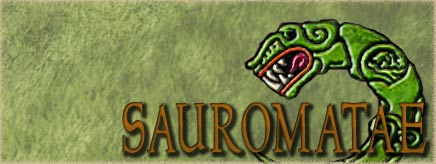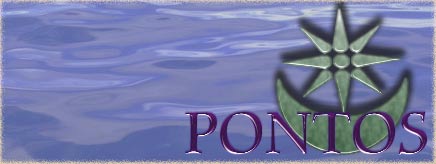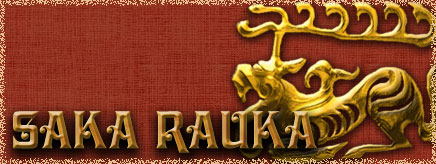First off I will state that what I'm after here is reasoned debate on the issues I am raising. I have no nationalist axe to grind (unlike some of the proponents of the debate, something I will go into in a little more detail). So, it started from reading Stephen Oppenheimer's origins of the British, and also with reference to Barry Cunliffe's (and others) work on Celtic from the West. The more I look, the more reason I have to doubt the 'standard' understanding of Hallstat/La Tene being the centre of so-called Celtic culture. At least part of the problem here is in terms of a broad use of the term Celtic to incorporate on the one hand a spread of material cultures, and on the other the spread of Celtic languages, and the confusion thereof. Associated with this is a linking of the terms Gaul/Gala and Celtic, so that the two terms become synonymous. At the heart of all of this lies, imo, a simple Geographical error, on the part of Herodotus, which has been compounded by a rather romanticised (though honest) extrapolation of material finds into what amounts to a pan-European uber-culture.
There are so many questions to put that I hardly know where to start, so I'll start with the error. Herodotus (or perhaps some later scribe), for some reason, places the source of the Ister (Danube) somewhere in the Pyrennes. He then goes on to describe the location of the Keltoi as beyond the pillars of Heracles (the straights of Gibralter) , which is indeed where we find the Celtici. recent work by Koch on Tartessian seems to have it classified as a Celtic language, and therefore as possibly the earliest written Celtic language. Now what do we actually know about Celtic languages? The remaining Celtic languages (Gaelic/Goidillic, Welsh, Cornish and Bretton) all survive on the West Atlantic coastal areas. Hispano-Celtic languages were spoken most predominantly within the Western part of the Iberian peninsula, with older probably pre-Indo-European, Iberian languages along the Eastern seaboard (along with Greek and Punic insertions). I have little reason to doubt that Gaulish was a Celtic language, especially as Caesar tells us that those within 'real' Gaul (of which more later) refer to themselves as Keltoi. Now, this is quite important, if true. There seems to be an idea that the word Keltoi is a Greek term meaning 'foreigner', but we know from inscriptions found particularly in Spain, that Celtici/Celticos is used by the natives.
Now, in terms of using foreign terms to describe oneself, this brings up the matter of the various 'sub-tribes' of the Volcae. It seems to be accepted that Volcae is derived from proto-Germanic Walhaz (meaning foreigner, allegedly). This should be a rather jarring concept, and I have no idea why it isn't seen as such. Why would we believe that the Romans and Greeks were referring to 'Celtic' tribes by a Germanic term? If it is how the tribes themselves called themselves then why were they using what amounts to a pejorative, foreign term as a prefix for their tribal affiliation? How many other tribal affiliations describe themselves thus (ie a tribal affinity subject to an overarching affinity)? I can think only of the Aeromici. In terms of Volcae there is another possibilty, albeit one might have to stop assuming that they are Celtic speaking. There is a proto-Germanic route wolk, from which is derived the English folk and the German volk. So Volcae (the latinised form) would mean the people/nation/ tribe of. To me this makes more sense. This, however, goes against the prevailing concept of 'Celtic' material culture and Celtic language being synonymous and developed within the Danube are (Halstat, La Tene).
This is exacerbated by the extrapolation of Gaul being equivalent to Celtic. Again we have a surprisingly jarring proposition that Gala (and thence Gaul) is derived from the proto-Germanic route Walhaz. But, again, why would the Romans and Greeks be using a proto-Germanic term? A more convincing etymology is from the Greek Galact, or milk - referring to either the paleness of the people (which is something the Greeks make a point of) or, perhaps, from their reliance upon cattle and therefore dairy produce. Also, as a sidenote, Walhaz is a compound, from the root Wal, which means battle (hence Valhalla, Valkyrie), so Wal-Haz probably means those we battle - so not simply foreigner, but more like enemy.
Tacitus gives us a clue that the language spoken in Galatia was perhaps not German, though his words have been generally taken to inform that they did. He says that the Galatians still spoke a language that was similar to that of the Treveri. That seems pretty specific. Not in Gaul (more generally) but the Treveri in particular. The Treveri identified themselves as Germanic. Another tidbit from Tacitus informs us that the Aesti, who live to the East of the Suevi, share the manners and customs of the Suevi but speak a language more like that of the British. Tacitus spent a fair bit of time in Britain (particularly, I believe, Eburacon - ie North-East England); he was interested in languages and is one of the few early historians to associate languages in writing.
In terms of the languages spoken in Britain the role of Commius is quite telling also. It was he who was sent over to 'sound out' the various British tribes. It was he, also, who negotiated on Caesar's behalf with Cassivellaunus. As this was what amounted to a capitulation to Caesar's power why was Caesar himself or any of his own officers instrumental in this? Commius was a leading member of the Northern Belgic Atrebates (who are likely to be associated with the British entity of the same name). Caesar nowhere else uses a proxy for his negotiations, except for when he sent a friend from the province of Gaul to negotiate with Ariovistus. He was sent because he spoke Gaulish which we are assured by Caesar Ariovistus spoke, due to his long association with the Gauls. So, quite possibly, there was a language barrier between Gaul proper and the British polities which Commius was able to bridge.
One only has to look at a language map of the Italian peninsula during the period of Roman expansion to see that even in such a small area there was a great proliferation of languages. Today once one scratches under the surface of legal national languages on finds a plethora of smaller languages and dialect groups. I think that Brythonnic (as in the relation of modern Welsh) was one of a number of languages present within Britain at the time of first contact with the Roman world. There are substantial differences between the cultural entities that existed within Britain in terms of organisation, religious beliefs and, I believe, language.
I also believe that the Danube cultures which are linked with 'Celtic' material culture had a language with closer affiliations with proto-Germanic, and that the Celtic languages are of the Western Atlantic zone. Only by re-assessing the whole picture (which would involve unpicking the romanticised 'Celtic' story formed in the 19th century) and putting aside prejudices conceived from this, are we likely to piece together a realistic picture of the power structures and affinities during the period leading up to and during the Roman period, and how rhose tie in with subsequent history.
I will state again that I am not interested in any nationalist agenda or ethnic affiliation and would distance myself from any such agenda. I would be very interested in other's thoughts on this.



 Reply With Quote
Reply With Quote












Bookmarks